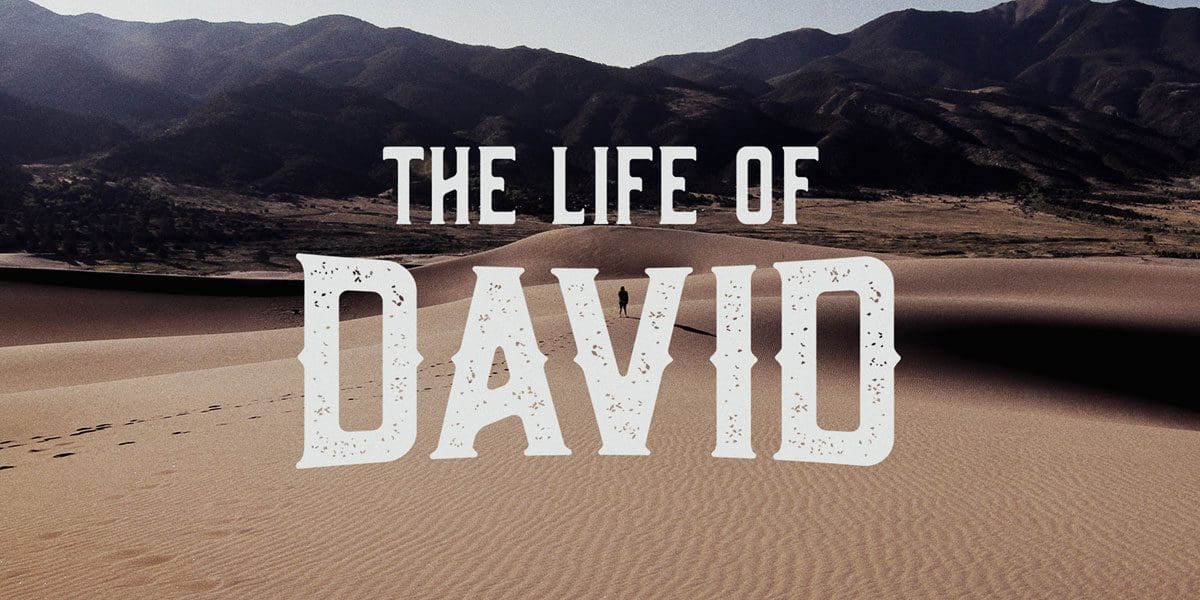I heard the sound of you in the garden, and I was afraid, because I was naked, and I hid myself. (Genesis 3:10)
Moments after God spoke his good creation into being, Adam spoke to God the first declaration of shame.
Fear, embarrassment at being exposed, hiding. Moments later, accusing someone else to escape scrutiny of his own sin.
This is our way. We create a mess in our shame, trying to throw off the weight of our sin. We hide and accuse, trying to hang our shame on other people. We don’t want to be responsible.
Three Ways God Deals with Your Shame
But the Lord’s ways are higher than our ways in view of sin and shame. As the one who is holy and perfectly pure, he is the one able to overcome the contamination of sin and shame. From the first human sin, his way has been to act on our behalf and take our shame from us.
1) God doesn’t ignore sin, but brings forth truth.
Adam and Eve’s sin quickly leads to chaos and confusion. In their rebellion against God’s command, hiding, and blaming, they have mired themselves in layers of shame and twisted the story to avoid responsibility: “The man said, ‘The woman whom you gave to be with me, she gave me fruit of the tree, and I ate.’…The woman said, ‘The serpent deceived me, and I ate’” (3:12-13).
The more they speak, the more dishonestly they try to cover their sin.
But God knows the truth of what’s happened, and he stops the chaotic spiral of shaming. He finds Adam and Eve and brings them out of hiding. He addresses the serpent, Eve, and Adam individually, identifying the consequences for each on the basis of their sin.
God’s truth is good news for us, even though it means consequences for our sin. God doesn’t ignore sin, pretending it’s not there or not that bad. He tells us what our sin leads to, facing it honestly. Shame leads us to hide from the truth, but we can bring our confession of sin to God, knowing that he has seen us and knows exactly what happened. He will not draw us into fear or chaos as he deals with us, but will lead us to truth and honesty, freedom from hiding and shame.
2) God works for his glory and our salvation.
God also doesn’t gives us over to shame’s lie that says our sin is hopeless and all-encompassing, with no solution. Even while he punishes in the garden, he points to the solution.
As God curses the serpent, he promises a day when evil will be destroyed: “I will put enmity between you and the woman, between your offspring and her offspring; he shall bruise your head, and you shall bruise his heel” (3:15). This is the first prophecy of Jesus’ defeat over sin and Satan: “He [Jesus] shall bruise your head.” Before he has finished punishing sin, God is already speaking forth his plan for restoration, actively working to glorify his name as one who will redeem.
Woven into God’s promise of triumph is a promise to work through one who is unworthy. Eve has sinned and deserves to be stricken from God’s plan, but he says he will use her in his restoration: The “he” that will crush the serpent is “her offspring.” She has brought death upon herself, but God will use her to bring forth the One who will destroy death. Her life will bring glory to God.
Shame tells us that nothing good could come from our lives. It says once you’re defiled by sin, you have no purpose before God but to be destroyed. Ashamed, Eve hid from the Lord, the One who created everything good. But God isn’t limited by our shame. Through Christ, he is the victor over sin and shame, and he is able to accomplish his work, for his glory, using sinful and shameful people.
3) God covers us.
After he has laid forth the punishment for the man and woman’s sin, God reveals his great compassion as he deals with their guilt. They stand before him wearing a feeble attempt of leaf-coverings to hide their shame, but he has something better.
And the Lord God made for Adam and his wife garments of skins and clothed them. (3:21)
After Adam and Eve sinned, they immediately realized they were naked. They felt the shame of their sin and wanted to hide the most intimate parts of themselves. Then Adam further tries to cover himself by exposing his wife: This woman you gave me, she gave me the fruit to eat! Bone of his bone, flesh of his flesh, he now casts her out, open to public scorn, trying to protect himself.
But God has a better covering for both of them. He doesn’t rip away their fig leaves to expose them; he doesn’t mock the coverings they have attempted. God covers them with garments of skin. These coverings were thick and warm and protective. They covered their nakedness and protected their physically vulnerable bodies.
This theme of God covering his people runs throughout Scripture:
- In the Psalms, those who seek him are covered under his wings and hidden in the secret place of his tent (Psalm 91:1-4; 27:5).
- In Jeremiah, God hides the prophet from those who sought his life (Jeremiah 36:26).
- In Zechariah, he clothes the high priest in clean robes, even as Satan accuses him before God’s throne (Zechariah 3).
God’s coverings are indications of honor, placing his favor and protection on unworthy men and women.
How Jesus Defeats Your Shame
In all of these ways, God’s handling of Adam and Eve’s shame is a step toward his ultimate work through Jesus Christ. Jesus is the Truth who deals with our sin head-on in his death and resurrection, defeating its reign and chaos in our hearts. His blood is the perfect covering for our sin, because his blood not only covers our sin, but actually takes it away. Jesus went to the people who were the most shameful, seen as hopeless by the rest of the world, and drew them into his plan for salvation, just like his Father did.
How do you react when your eyes are opened to you sin? Do you hide in fear? Do you become defensive and blame someone else? In your moments of agony over sin, you have a God who will deal with you in truth and compassion, and who offers you his perfect covering. You can come to him in repentance instead of hiding from him. You can ask him to work his glory and victory over your shame. You can ask for his covering of grace.
Hallelujah, what a Savior!










